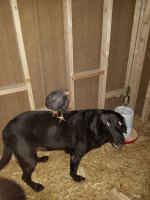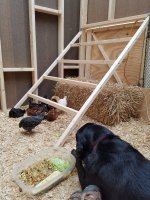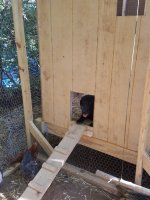User395221
Crowing
Yes, they do know or learn who is in the household "pack" and who isn't. My dogs will go crazy over that cat that deliberately walks along the top of the fence, but our cats are ignored. Ditto with our birds and those crows out the back.They are towards everything else that comes around though, like raccoons and coyotes. Somehow the dogs know the chickens are mine it seems.
As to how much training is needed to get the dogs to leave chooks alone, a lot depends on the dog's personality/traits. Some are completely disinterested in the "game" of chasey, others love it and it needs to be made clear that that game isn't in the repertoire of permitted activities.







